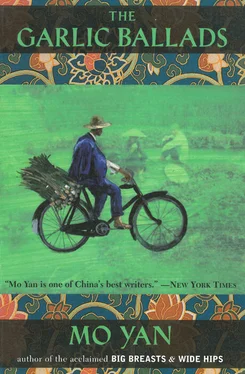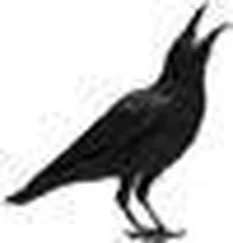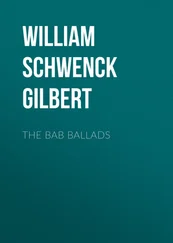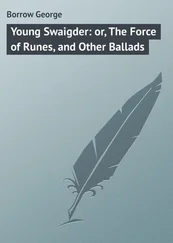“Watch your mouth, Number Seven!” the warden threatened.
The dialogue between the young inmate and the doctor pained Gao Yang. He hoped she’d have more to say to him. But it wasn’t to be, for she picked up her bag, slung it over her shoulder, and walked out with the warden, who returned a half-hour later. “We have prepared a special meal for you, Number Nine,” he said from the corridor. “Try to eat it.”
A gray bowl slid under the door, flooding the cell with a delicious fragrance. Green lights shot from his cellmates’ eyes. The middle-aged inmate personally carried the bowl of noodles over to him, and when Gao Yang sat up he saw a pair of golden eggs nesded in the noodles and a layer of green onions and oil floating in the broth.
“Warden, Officer, I’m sick, too!” the young prisoner yelled. “I’ve got a bellyache!”
“Little Li,” the warden called to one of the soldiers pacing the corridor. “Make sure they don’t steal his food.”
Rattled, the middle-aged inmate quickly set the bowl down on Gao Yang’s cot and returned reluctantly to his own cot.
The sight of the noodles and eggs triggered Gao Yang’s appetite. Picking up his chopsticks with a trembling hand, he stirred the slippery white noodles — the thinnest and whitest he’d ever seen — then lifted the bowl to his lips and delivered a mouthful of the warm broth to his stomach and intestines, which rumbled pleasurably. As tears brimmed in his eyes, he faced the door and muttered to the soldier, “Thank you, Officer, for your great kindness.”
Gao Yang, you’re a lucky man. An aristocratic woman you could only gaze at from afar before actually touched your head, and noodles the likes of which you never saw before now rest in your stomach. Gao Yang, people are never content with their lot. Well, it’s time for you to be content with yours.…
He ate every noodle in the bowl, and slurped up every drop of broth. With some embarrassment, he noticed that the old and young inmates’ eyes were glued to his bowl. He was still hungry.
“Still sick?” the guard asked through the bars. “You could probably polish off a bucketful if you weren’t.”
“Officer, I’m sick, too,” his young cellmate wailed. “I’ve got a bellyache … ow! Dear Mother, it’s killing me!”
3.
A shrill whisde signaled the exercise period, a time for prisoners to stretch their legs and get some fresh air. Two guards unlocked the cells, and as Gao Yang’s older cellmates stepped into the corridor, the younger one removed the plastic pail, which was brim-full of the inhabitants’ waste. An idea hit him. “Hey, new man,” he said to Gao Yang, “since you ate a big bowl of noodles, you should be the one to dump this.”
Without waiting for a response, he darted into the corridor.
Feeling a bit sheepish about being treated to a bowl of noodles and an injection by an aristocratic woman, Gao Yang strained to sit up. After stepping barefoot onto the cold, damp cement floor, his head swimming, he stood wobbily, his injured foot so numb it felt as if he were stepping on cotton. He picked up the plastic pail, which wasn’t particularly heavy but stank horribly, and tried to hold it at arm’s length. Unfortunately, he wasn’t up to the task, and each time it bumped against him it splashed its stinking contents onto his bare leg.
The sun’s rays were blinding, his eyes ached unbelievably, and his face was awash with tears. After a moment, his eyes stopped hurting, but he still couldn’t get his arms and legs to stop quaking; so he halted, put down the pail, and grasped a post to steady himself and catch his breath. His respite was short-lived: a guard at the end of the corridor screamed at him, “No pails on the floor!” Frantically he picked it up and fell in line behind other prisoners carrying similar pails. At the end of the corridor they turned southwest, toward a little room with walls of corrugated metal and wormy planks, one of which sported the word “Men” in a red circle. Dozens of pail-toting prisoners lined up in single file waiting to enter the room. One came out, another went in, over and over.
When it was his turn, he walked inside, barefoot, and was immediately ankle-deep in a sickening mixture of mud and human waste. An open pit filled the center of the outhouse, and it was all he could do to keep from falling dizzily into it as he dumped his load. The other prisoners lined up beside a rusty water tap near the outhouse to clean their pails. The water came out weakly, like the stream of a little boy pissing into the air. The prisoners swabbed their pails with a balding short-handled broom, as if reaming out their own entrails. He felt like puking, and could nearly see the stringy noodles squirm around his stomach, chased by golden fried eggs. Clenching his teeth, he forced back the soggy lump that had risen to his throat. I can’t throw up. I mustn’t waste good food like that.
Before swabbing out his pail when he reached the tap, Gao Yang stuck his injured foot under the water to remove an accumulation of filth he didn’t dare look at. The man behind thumped him in the rear with his pail. “What the hell are you so picky about?” he growled. “This is no bathhouse!”
He turned and was face to face with a clean-shaven middle-aged inmate with large, jaundiced eyes and crinkled skin — a shriveled face that looked like a soybean soaked in water, then set out to dry. Frightened and chastened, Gao Yang excused himself pathetically: “Elder Brother, I’m new here … don’t know the rules … injured foot—”
The jaundiced-eyed inmate cut him short. “Speed it up, damn it! Exercise period’s almost over.”
Gao Yang hastily rinsed off his feet — the skin on his injured left foot was a ghostly white — then hastily scrubbed the inside of his pail.
Exhausted by the time he returned the refuse pail to its place in the wall, he could scarcely believe that in the space of twenty-four hours a vigorous man like him had been turned into a worthless, panting shell of a human being. The brief stay outside his cell made him aware of how foul the air was inside. He heard a rattle deep down in his chest and was confronted with thoughts of death. I can’t die now, he thought. He steadied himself and moved out through the still-open door into the light of the corridor, a vantage point that gave him a better sense of the prison layout.
Each end of the long, narrow corridor featured a steel cage manned by an armed guard. He spotted two small doors in the gray southern wall of the now-empty corridor, and wondered where the other prisoners were.
“Number Nine,” the guard at the western station called to him, “through that door.”
Doing as he was told, he emerged into the glorious outdoors, or, more exactly, an open-air cage around a concrete slab whose length corresponded to the corridor, but was some thirty feet wide and a good ten or fifteen feet high. Thick bluish steel ribs strung between rust-spotted steel posts formed the barrier between the prisoners and the land beyond the cage, which was planted with greens, potatoes, cucumbers, and tomatoes. Female guards were out picking cucumbers. Beyond the garden area rose an imposing gray wall topped with barbed wire, which reminded him of what he’d heard as a child, that prison walls are equipped with high-voltage wires that electrocute anything that comes into contact with them, even a bird.
Most of the prisoners gripped the steel ribs and gazed outside the enclosure; the spaces between the ribs were about the size of a small bowl, nowhere big enough to accommodate even the smallest head. A few men sat on the ground against the northern wall, sunning themselves, while others paced the outer edges of the cage, which was divided into two sections: the western half for male prisoners, the eastern half for women.
Читать дальше












